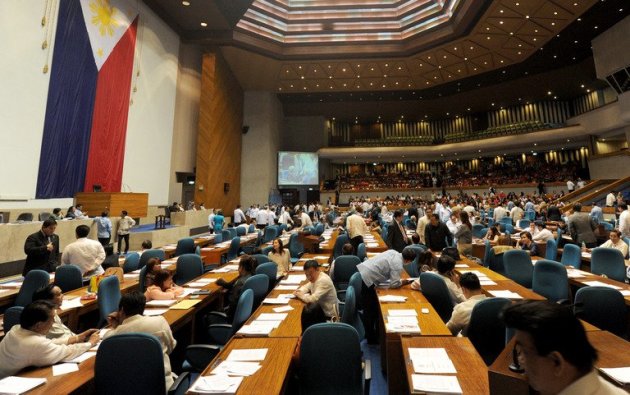 |
| Session hall of the Philippine House of Representatives. Photo courtesy of Yahoo! News Philippines. |
Course Description:
A course on the art of argumentation and debate; including
familiarization of important concepts, and the development of logical thinking
and persuasive speech and writing skills.
Course Objectives:
At the end of the course, the students should be able to:
1. define the various concepts
of argumentation and debate;
2. state a proposition and its
issues;
3. differentiate proof and
evidence;
4. use inductive and deductive
reasoning;
5. identify fallacies;
6. use conviction and
persuasion in reading and writing; and
7. participate in an oral
debate.
Course Outline:
I. Introduction to the Course
A. Getting to know the instructor, the students, and the course
B. Distribution of course syllabus
C. Introduction to Argumentation and Debate
II.
What is Argumentation and Debate?
A. Argumentation and debate
B. Conviction and persuasion
C. Argumentation in human relations
III. The proposition
A. The subject of a proposition
B. Classes of propositions
C. Forms of the proposition
D. Characteristics of a proposition
IV. The Burden
of Proof and Presumptions
A. The burden of proof
B. The presumptions
1. Theory of presumptions
2. Classes of presumptions
V. The
Theory of Issues
A. Definition of issues
B. Issues in general argumentation
C. Duties of the affirmative and the negative
D. Issues and partition
PRELIMINARY EXAMINATION
VI. Evidence
A. Definition of evidence
B. Evidence and proof
C. Sources of evidence
D. Witnesses
E. Classes of evidence
F. Other terms used in law
G. Tests of evidence
VII. Inductive
reasoning
A. Inductive methods
B. Argument from antecedent probability
C. Argument from example
VIII.
Deductive reasoning
A. Definition of syllogism
B. Rules of syllogism
C. Classes of syllogism
D. Modified forms of syllogism
MIDTERM EXAMINATION
IX. Fallacies
A. Rhetorical fallacies
B. Logical fallacies
X. The
Debate
A. The introduction, discussion, and conclusion
B. Refutation and rebuttal
C. Types of debate
D. Delivery
FINAL EXAMINATION
Textbooks/Materials:
Africa, Francisco M. (1952). The art of argumentation and debate. Manila: Far Eastern
University. (A classic textbook on the
subject; apparently written for law students.)
Miller, R. K. (1986). The informed argument: A multidisciplinary reader and guide. USA:
Harcourt Brace Jovanovich, Inc. (Contains
argumentative essays on several disciplines. Available at the college library.)
Dear sir, may i use your course syllabus as my reference? thank you and more power
ReplyDeleteGood day, sir G! I find this syllabus helpful for my class. May I also use this as my reference? Thank you and Godspeed.
ReplyDelete